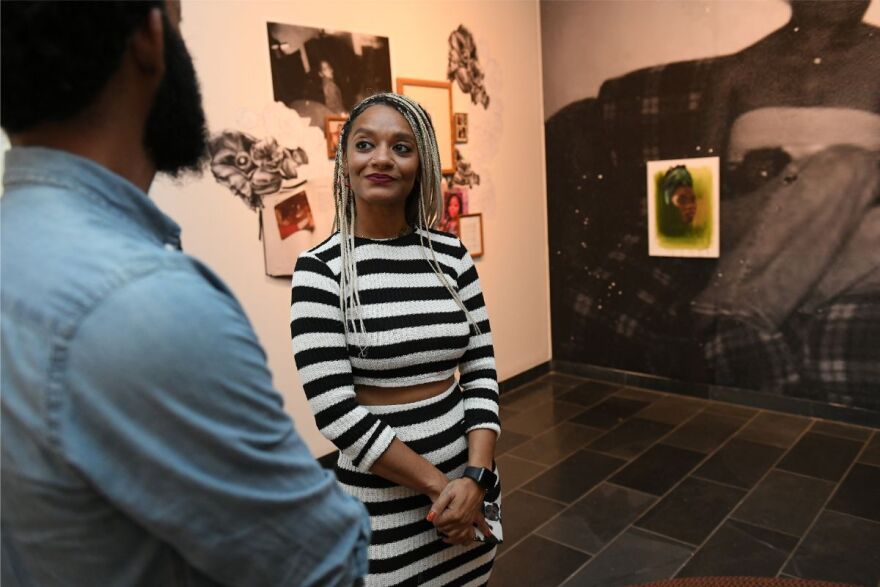Artist Tatyana Fazlalizadeh, who is best known for her public art series Stop Telling Women to Smile, is bringing multiple art installations to the University of Michigan throughout this fall. Her works include an exhibition at the Institute for Humanities Gallery, and a series of murals that will be on display across campus.
The new mural series titled, To Be Heard, will echo Stop Telling Women to Smile, a project offering a very direct response to street harassment. The series consists of bold yet elegant graphite renderings of women, accompanied by their own words. One mural depicts three women each with a defiant expression. The text below them reads, "Harassing women does not prove your masculinity."

"Stop Telling Women To Smile really sort of developed my process of interviewing people, sitting down with someone, having a conversation with them, and really wanting to have these very candid, open conversations about topics that, you know, I don't know that we normally talk about in very public ways. . . "
To Be Heard was informed by multiple conversations Fazlalizadeh had with U of M students. Many spoke about their personal experiences with racism, sexism, and finding community as young people in a university setting.
“. . .When each student came into my office to talk to me, it seemed like they were just pouring out," Fazlalizadeh said. "You know, things are just pouring out of them. . . And so, there has to be this level of trust there for them to come in and just to have so much to say, and to have this space where they felt like they were able to say it. I was glad that I was able to provide that space."

Her gallery installation, Pressed Against My Own Glass, explores Black women's relationship with home spaces. Fazlalizadeh offers up a rug, an old lounge chair, photos of family member, and an ashtray as windows into her own childhood living space. Another piece of the exhibition is a video projection on top of a wall, which bears a piece of text written by bell hooks.
"It's an essay that she wrote about home," Fazlalizadeh said. "And she talks about in this essay, Black women creating this home space as a place for safety for ourselves, away from the racial aggressions that we experience on the outdoors."
However, the exhibition also feature images and videos of Breonna Taylor, Korryn Gaines, and Atatiana Jefferson, all of whom are Black women who died in their homes at the hands of police.

Pressed Against My Own Glass will be on display through Friday, October 21 at the Institute for the Humanities Gallery. The murals that make up To Be Heard will be unveiled at Angell Hall, the Trotter Multicultural Center, the Modern Languages Building, and Shapiro Library on Wednesday, September 28.
Fazlalizadeh will also deliver a lecture titled, “To Be Heard: Public Art Interventions” as part of the Penny Stamps Distinguished Speaker Series at the Rackham Amphitheatre on Wednesday, September 28 at 5:30 p.m.










